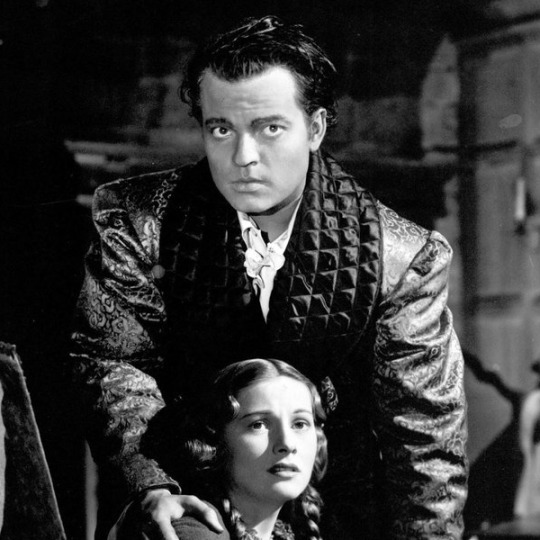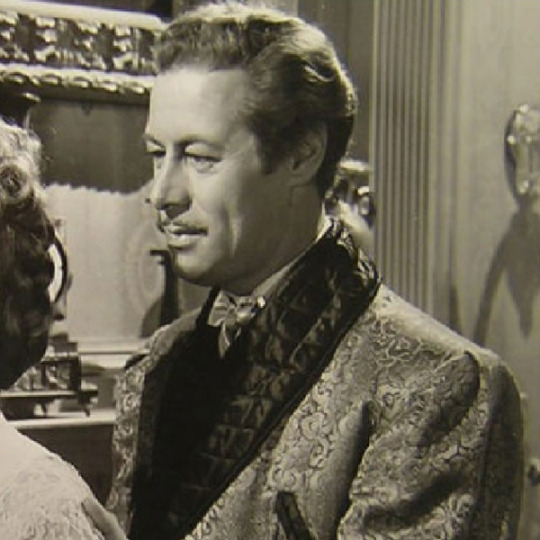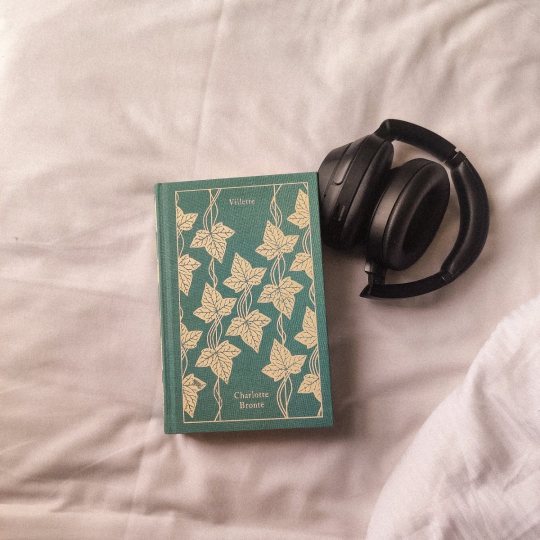#charlottebronte
Explore tagged Tumblr posts
Photo


Joan Fontaine first wore this sweet little gown as the title character in the 1943 version of Charlotte Brontë’s classic novel, 𝑱𝒂𝒏𝒆 𝑬𝒚𝒓𝒆. The gown made another brief appearance on actress Jane Nigh as Tabby Wells in the 1946 film 𝑫𝒓𝒂𝒈𝒐𝒏𝒘𝒚𝒄𝒌, based on the book by Anya Seton. The costume was designed by the Swiss-born designer René Eugène Hubert. He began his career designing costumes for theatre in France and Germany. His work so impressed the actress Gloria Swanson that she convinced him to move to Hollywood and become her personal designer. Over the years, he worked at Paramount, MGM, and Fox, specializing in period costumes. Find out who else has worn his costumes at Bit.ly/VicEd191
#JoanFontaine#CharlotteBronte#Dragonwyck#JaneNigh#ReneHubert#GloriaSwanson#HollywoodHistory#CostumeDesign#FashionHistory#MGM#ParamountStudios#FoxStudios#Costumes#RecycledMovieCostumes
142 notes
·
View notes
Text

#frases#citas#notas#libros#letras#escritos#books#versos#lector#quotes#charlottebronte#shirley#ayuda#consuelo
4 notes
·
View notes
Text
Currently Reading: Chapter IV of 'Villette' by Charlotte Brontë
To be honest, I have no clue what Villette is about, and I don’t want to Google it. I like the mystery. What will happen? What is the plot? What characters are important? It makes it more fun! I’m enjoying it so far. I’ve always loved classics! Happy Reading ❤

View On WordPress
#amreading#bibliophile#Book Blog#Book Blogger#Charlotte Brontë#CharlotteBronte#Classic Literature#Classics#English Classics#ficiton#Villette
3 notes
·
View notes
Text
A Study: Lucy Snowe in “Villette”
A note on the text: I used Charlotte Bronte’s Villette as published in 2004 by Signet Classics
I love the book Jane Eyre and while Villette isn’t quite as good as that classic, it has a protagonist, Lucy Snowe, that has as much depth and subtlety as the one in Bronte’s magnus opus does. I love the way in which this book hints at Lucy’s subtilties in small, seemingly insignificant ways.
Lucy Snowe is very Puritanical in a lot of ways. She dislikes frivolity and really dislikes any excessive displays of emotion. She prizes herself on being in complete control of herself and her emotions. She having peace and tranquility in her life and tends to shy away from anything that would disturb that peace. When she reflects on her time spent in her childhood home she says that her time there went “not with tumultuous swiftness, but blandly like the gliding of a full river through the plane. . . . The charm of variety was not there, nor the excitement of incident; but I liked peace so well, and sought stimulus so little, that when the latter came, I almost felt it a disturbance, and wished it had still held aloof”, and later admits that she only changes once she has been “stimulated into action” and that she has to be “goaded, driven, [and] forced” to do anything (4, 40). It makes sense therefore why she struggles to relate to people like the flirtatious and ditzy Ginevra Fanshawe. While Lucy is emotionally restrained and generally avoids doing anything to “disturb the peace”, Ginevra is an emotional firecracker who enjoys stirring up stuff wherever she goes. Yet Bronte skillfully shows at various points in the story that underneath Lucy’s stoic exterior beats a very human, emotional heart.
For the bulk of the story Lucy is an English teacher working at an all girls boarding school, run by the equally stoic Mrs. Beck, in Villette, a fictional French town, and for a while it seems like the two are a match made in Heaven. Yet, it eventually becomes evident that Lucy isn’t as happy there as she initially thought she would be. It’s not really until she meets little Georgette that she begins to realize just how lonely she is: “Her clasp and the nestling action with which she pressed her cheeks to mine, made me almost cry with a tender pain. Feeling of no kind abounded in that house; this pure little drop from a pure source was too sweet: it penetrated deep, [subdued] the heart, and sent a gush to the eyes” (134). However this proves to be only a “temporary lapse in judgment” at least until Dr John Graham Bretton shows up.
It’s not until Dr. John comes onto the scene where we really see Lucy wrestle with her emotions. She loves John, but something deep inside of her keeps her from fully expressing herself to him. Feelings, in her mind, lead only to disappointment and pain. She can’t get disappointed, heart broken and hurt if she doesn’t allow herself to get attached to anyone. No good can come from her telling John how much she loves him. Or at least that’s what she thinks. But there is something else, something deep inside of her, something outside of the realm of reason that dares to hope that things might be different. Reason tells her that she should keep her mouth shut and yet, for the first time, Lucy admits that she hates how
this hag, this Reason, would not let me look up, or smile, or hope; she could not rest [until I was] altogether crushed, cowed, broken in and broken down. According to her, I was born only to work for a piece of bread, to await the pains of death, and steadily through all life to despond. Reason might be right; yet no wonder we are all glad at times to defy her; to rush from under her rod and give a truant hour to Imagination- her soft, bright foe, our sweet Help, our divine Hope. We shall and must break bounds at intervals, despite the terrible revenge that awaits our return. . . . Long I should have died of [Reason’s] ill usage. . . but for that kinder Power (257).
That’s why she has to be pushed as hard as she does to do anything: her overly critical mind has the tendency to stamp out her ability and desire to do anything with her life. I bet there are a lot of people who know what that feels like.
Happiness is something that lives somewhat outside the realm of reason. It is something that has be to experienced out there in the real world. It cannot be cultivated, worked on, or reasoned with. Happiness, as Lucy later says, “is not a potato to be planted in mold and tilled in manure” (282). You have to risk getting your heart broken in order to experience true happiness.
However the true power of Bronte’s skill as a writer comes in the way that Lucy changes throughout the course of the novel while maintaining the qualities that make her so unique. She learns how to feel, how to let love into her life, but never quite shakes the old Puritanical quality of self control. It eventually becomes evident that Dr John loves Paulina and while Lucy is happy for them, she still struggles with feelings of jealousy. So while on the surface she seems stoic and unattached, underneath there is a brewing cauldron of emotion. Look at how she describes the way that John watches Paulina with only the slightest sense of jealousy seeping through: “[John] followed with his eye the gilded glance of Paulina’s thimble as if it had been some bright moth on the wing, or the golden head of some darting yellow serpent” (329). I love how all throughout the book, Bronte shows us again and again, and in very subtle ways, that there are ore things going on inside this character than there seems to be.
Charlotte Bronte is an incredible writer who allows her characters to have incredible depth. Lucy is an incredible rich character full of depth and complexity. She is pretty unique in the way that she hints at emotions that are bubbling right underneath the surface, the ways in which she allows her character to grow and change while retaining her essential uniqueness. It’s quite a unique and beautiful gift.
3 notes
·
View notes
Text

☕𝐓𝐇𝐈𝐒 𝐖𝐄𝐄𝐊'𝐒 𝐅𝐄𝐀𝐓𝐔𝐑𝐄𝐃 𝐏𝐎𝐒𝐓☕️
Shirley
0 notes
Text

#charlottebronte #janeeyre #janeeyrecharlottebronte
1 note
·
View note
Text
Please suggest which Bronte books I should read. Thanks.
0 notes
Text
Reminder Reflections 108
Crying does not indicate that you are weak. Since birth, it has always been a sign that you are alive.– Charlotte Brontë
View On WordPress
#AliveAndCrying#CharlotteBronte#EmbraceYourEmotions#EmotionalResilience#EmotionalStrength#FeelToHeal#StrengthInTears#TearsAreLife#TearsAreNotWeakness#TheLoulouge
1 note
·
View note
Link
#Autobiographie#bestseller#CharlotteBronte#classics#deutsch#Frau#Geister#Gothic#Illustrationen#Internat#JaneEyre#Klassiker#Liebe#London#Lowood#Phantastik#Roman#Romantik#Townsend#Victorian#Waise
0 notes
Text


What could be more fitting for Halloween than a grand house shrouded in secrets, where whispers echo through the corridors, and eerie screams pierce the night? This is beautifully captured in Charlotte Brontë's Jane Eyre, where today's costume comes from.
This particular costume is a dressing gown worn by none other than Orson Welles as the character of Edward Rochester in the 1943 version of the classic novel. Apparently, several of his costumes from this film went on to be used by Rex Harrison's character of Stephen Fox in the 1947 film The Foxes of Harrow.
If two actors shared similar measurements, it was not uncommon for them to share costumes throughout films.
Learn more about this fantastic piece at bit.ly/VicEd180
#VictorianGothic#Gothic#Halloween#Costume#Costumes#RexHarrison#OrsonWelles#JaneEyre#TheFoxesOfHarrow#ReusedCostumes#FoxStudios#CharlotteBronte
96 notes
·
View notes
Text


5 notes
·
View notes
Text
Book Review: 'Villette' by Charlotte Brontë
⭐⭐⭐ Rating: 3 out of 5. Summary Villette was published by the English author Charlotte Brontë in 1853. The protagonist, Lucy Snowe, leaves her tragic past in England when she sails for Villette. Villette offers opportunities, jobs, and even love. Review I finished Villette on the 14th of August, exactly two months after I started it. It was a slow read for me. I went from reading 11 books in…

View On WordPress
#BookBlog#BookReview#books#CharlotteBronte#englishclassic#Englishfiction#fiction#Literature#Villette
0 notes
Text
Moments in the rain ☔
1 - Pride and Prejudice (2005)
2 - Northanger Abbey (2007)
3 - Sense and Sensibility (1995)
4 - Jane Eyre (2006)
5 - Becoming Jane (2007)
6 - Far from the Madding Crowd (2015)
Pictures found on: @pinterest
#janeausten #janeaustenfan #janeite #austenite #austenland #charlottebronte #thomashardy #novels #books #perioddramas #perioddrama #prideandprejudice #northangerabbey #senseandsensibility #janeeyre #becomingjane #farfromthemaddingcrowd
instagram
1 note
·
View note
Text
'She was always held back by the idea that people could not want her.'
- Shirley, Charlotte Brönte
0 notes
